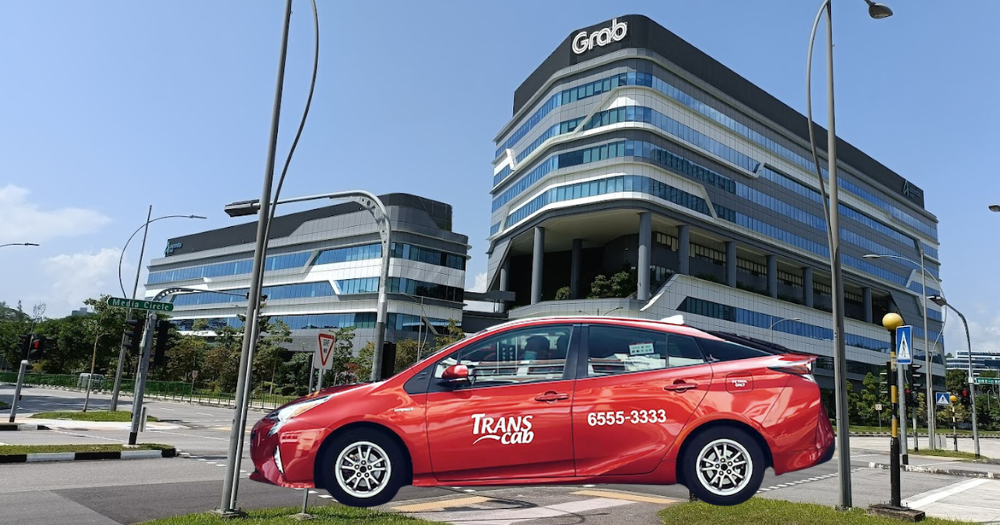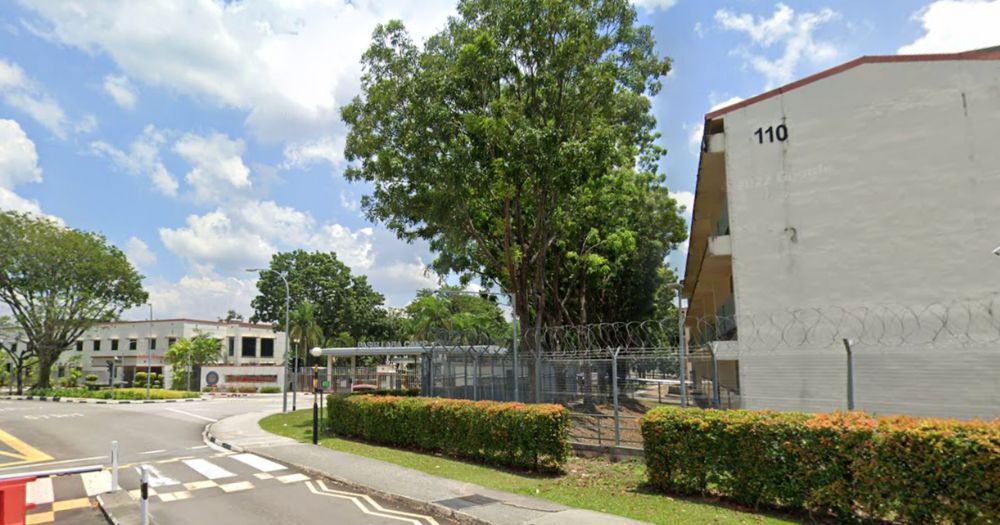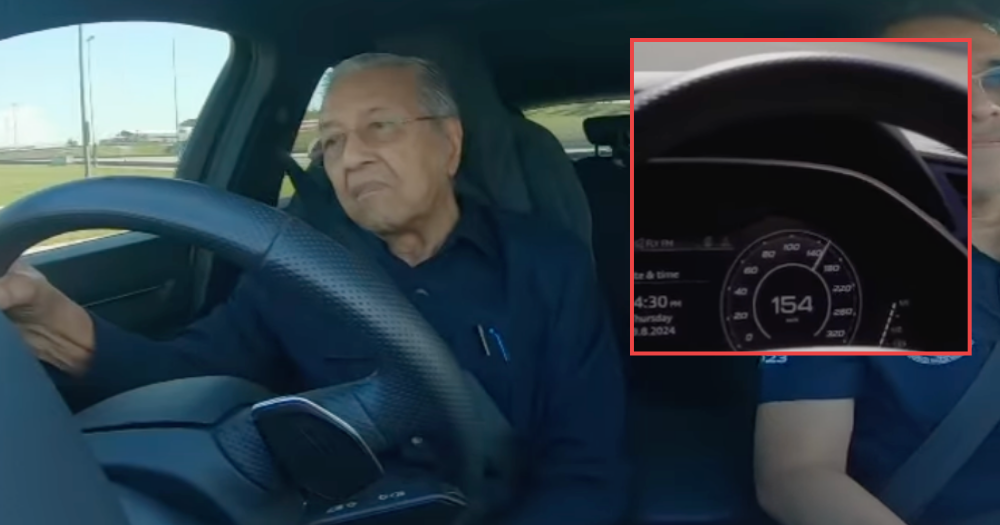Grab's proposed acquisition of Trans-cab will 'significantly weaken' rival ride-hail platforms in S'pore: CCCS
Grab may thus "entrench and strengthen" its already dominant position in the ride-hail platform market, said CCCS.

Grab Holdings Limited's proposed acquisition of Trans-cab Holdings Ltd, Singapore's third largest taxi operator, is likely to result in "a substantial lessening of competition" in the market for the supply of ride-hail platform services in Singapore.
The Competition and Consumer Commission of Singapore (CCCS) said in a provisional statement on Jul. 11 that it believes this will infringe Section 54 of the Competition Act 2004, which prohibits anti-competitive mergers
Announced plan to buy
Grab announced its plan to buy Trans-cab, which includes the latter's taxi and car rental business, maintenance workshop, and fuel pump operations, through its subsidiary GrabRentals Pte. Ltd for an unknown amount in July 2023.
At the time, Trans-cab owned a fleet of some 2,200 taxis and more than 300 private-hire vehicles, reported The Straits Times (ST).
CCCS had previously raised competition concerns about Grab's proposed acquisition in Oct. 2023 after receiving information from Grab, Trans-cab, and members of the public, as well as third-party feedback from industry players.
Could 'restrict' rival platforms' access to Trans-cab drivers
CCCS said that Grab's acquisition of Trans-cab with the objective to "increase the availability of drivers on its ride-hail platform" is proposed at a time when its rival ride-hail platforms are facing "driver supply shortages".
Were Grab's proposed acquisition to fall through, the rival ride-hail platforms would be "significantly" weakened because their access to Trans-cab drivers, an important source of drivers who are "not owned by or in any partnership with any ride-hail platform in Singapore," would be restricted.
This is because the "stickiness" of Trans-cab drivers to Grab's ride-hail platform is expected to increase with the acquisition:
"Data analysed by CCCS indicates that drivers who rent from ride-hail platform-owned fleets tend to use more of that ride-hail platform as compared to drivers who do not rent from such fleets.
There are also various strategies which may be employed by Grab to induce Trans-cab drivers to increase their usage of Grab's ride-hail platform."
May be 'difficult' to replace loss of Trans-cab drivers
However, it may not be easy for rival ride-hail platforms to replace any loss of Trans-cab drivers on their respective platforms in a timely manner, said CCCS.
This is due to various reasons, including the aforementioned "stickiness" of drivers to certain ride-hail platforms, the high cost of fleet ownership and expansion, and driver incentives.
As such, Grab's proposed acquisition "is likely to affect the ability of rival ride-hail platforms to fulfil trip requests and, over time, make them less attractive to passengers and drivers" as drivers tend to prefer platforms with large numbers of passengers and vice versa.
At the same time, the acquisition will also "affect the ability of rival ride-hail platforms to expand the scale of ride-hail platform services offered", added CCCS.
Competitive constraints thus 'weakened'
CCCS concluded that the competitive constraints exerted by rival ride-hail platforms on Grab will be weakened, making it more likely for Grab to "entrench and strengthen [its] already dominant position".
Drivers and passengers may thus face higher commissions and fees net of incentives as well as fewer choices for ride-hail platform services, said CCCS.
Here, CCCS noted that Grab also recognised that its proposed acquisition could potentially help the company save on driver incentives:
"Grab has also recognised that through the proposed acquisition, it will likely to be able to significantly save on the incentives that it would have to pay to drivers as compared to if it employed alternative means to increase driver supply."
What's next?
Grab and Trans-cab will have 10 working days from the receipt of CCCS' provisional decision to make their representations to the commission and "offer solutions to address the competition concerns raised", said CCCS.
The commission will make a final decision on whether to clear or block the proposed acquisition after considering the representations as well as all the available information and evidence.
In response to ST's queries, Grab Singapore managing director Yee Wee Tang said the company's "determination to offer affordable and reliable transport options" remains unchanged after CCCS' latest decision.
However, the company did not answer whether it remains committed to the deal or plans to make further submissions to CCCS.
As for Trans-cab, the company's founder and chairman, Teo Kiang Ang, said he had no opinions on CCCS' latest decision, adding that the company would operate as usual.
Related stories
Top images via Unsplash & Google Maps

MORE STORIES




















